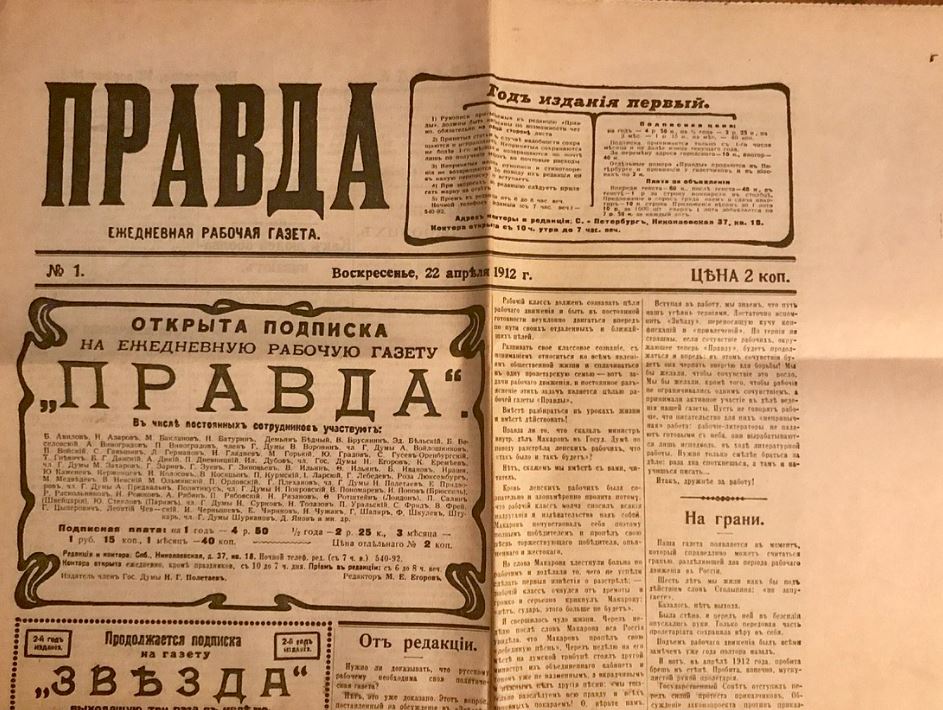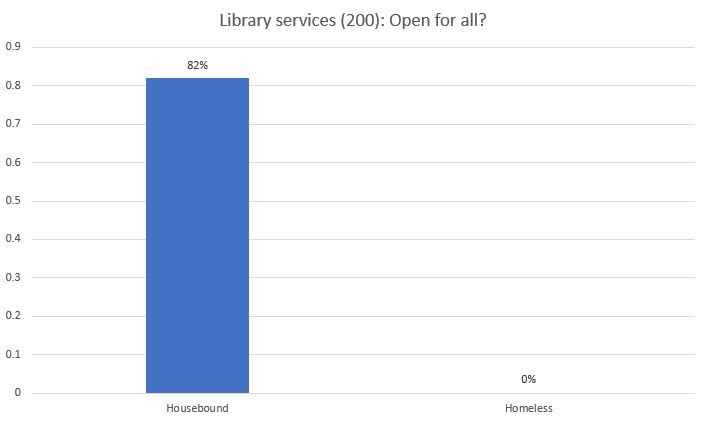In Library Land, the pandemic has exposed inherent fragilities including discriminatory class and race based practices. In turn, these praxis reveal that public libraries have a history of being agents of social control and exclusion.

Needs-based public libraries
Open for all? offers a “think piece” rather than an intellectual analysis. Columnist John Pateman shares his personal observations on issues, and his columns are designed to promote discussion and professional debate. He has arrived at his conclusions after 40 years of working in public libraries of/in all types and locations.
Most of us will never have heard of Comrade F. Dobler. However, 100 years after he evaluated libraries for the Communist Party of the Russian Federation, his thinking on these public institutions remains relevant and even prescient: those who need open access to information may be those who are fundamentally excluded from public libraries. In order to design and deliver public services that are truly inclusionary, library leaders and staff must start with a needs-based approach.
While carrying out research for my next book (Marxism and Public Libraries, to be published by Routledge in 2021), I came across this quote from Comrade F. Dobler. This statement originally appeared in a Pravda article and offers an evaluation of bourgeois libraries:
“The basis of the American library system is the big library open to all. But is the big library open to all actually one for all the people? No, it is definitely dominated by one class of society, to be precise, the class on which the state system restsv… as a result, the library is dominated not by those who need books the most, who are to a lesser degree armed with knowledge and education and are therefore weaker in the struggle of life, but by those who since childhood have been used to books and accustomed to use them at every step. For the worker and the little-educated worker, the library open to all is an alien institution. Everything in that library bears and cannot fail to bear the imprint of the bourgeois reader who dominates it. It is according to his tastes that the books are selected, it is according to his conception that everything is arranged. The worker, unless he is highly qualified or developed, feels himself a stranger in that library” (Lenin on libraries by F. Dobler).
Lenin wrote in the margins of this article: “True!”

This quote also reflects, almost word for word, the findings of Open to All? The Public Library and Social Exclusion (2000). This British report was the result of research carried out by academics at Metropolitan Leeds University and public library practitioners, including myself (I was the head of libraries at the London Borough of Merton at that time). The research included a survey of all public library authorities in the U.K., six case studies, and a series of background papers. I led the case study on public libraries across the religious divide in Northern Ireland and was the author of the background paper Public Libraries and Social Class.
One of the key findings of Open to All? was that public libraries are used the most by people who need them the least and they are used the least by people who need them the most. For example, we found that while 82 per cent of public libraries provided a home delivery service for people who were housebound, no library services were provided for homeless people.
Open to All? was launched at the Library Association by Dr Mo Mowlam, MP, Minister for the Cabinet Office and Chancellor of the Duchy of Lancaster. It formed part of Tony Blair’s New Labour strategy for tackling social exclusion (a euphemism for social class). It was, in many ways, a ground breaking report as it was the first of its kind to expose the myth that public libraries were democratic, neutral, apolitical and open to all. Its findings influenced public library policy in the UK (via Libraries for all: Social Inclusion in Public Libraries – Policy Guidance for Local Authorities in England) and launched the Community Led library movement in Canada (via the federally funded project).
Caption: In 2000, British research on public libraries found that 82 per cent of public libraries provided a home delivery service for people who were housebound and no library services were provided for homeless people.

Among its key recommendations, Open to All? suggested that public libraries should take a needs-based approach to service delivery, targeting those with the greatest needs. For example, at a local level all groups and individuals that are socially excluded or at risk of exclusion should be identified through community profiles and other methodologies such as needs analysis. In addition, more research was needed into the perceptions of libraries by non-users and how barriers to access can be removed. Detailed statistical monitoring of levels of library use by disadvantaged and working class users needs should be undertaken.
This needs-based approach was also identified by Dobler:
The library open to all is no good for the workers for many reasons. In library work particular attention is required in respect to the workers, as most of them are not trained readers, and hence they are the most difficult and most important customers. The literature which is the pabulum of our bourgeois reader is more often than not unsuitable for the worker, it contains much that does not interest him, much that is not within his reach and, in the final account, is superfluous and unnecessary. To select the right book for him one must know his psychology, which one can study only by working individually with him. The American library teaches that one must take into account the psychology of the individual reader, demands individualization of reading.
But individualization is insufficient and unfeasible unless one takes into account class psychology, which American libraries refuse to recognise. One must not only take class psychology into account, one must also study it, and in ones work create the new core of the modern library … This is particularly important for us to do, in view of the fact that, with the social overturn which our revolution brought with it, the spiritual culture of our society must also be changed. Our task is to restructure everything in such a way as to make it easier for the new shoots of proletarian culture to sprout and grow strong.” (Lenin on Libraries by F. Dobler)
And, as we know, many libraries are already delivering excellent community-led programming.
John Pateman has worked in public libraries for 42 years in a number of different roles ranging from library assistant to chief librarian. He was the chief librarian of three library systems in the U.K.: Hackney, a diverse inner London borough; Merton, a multicultural London suburb; and Lincolnshire, a large rural county. He is currently the chief librarian and the chief executive officer of the Thunder Bay Public Library.
